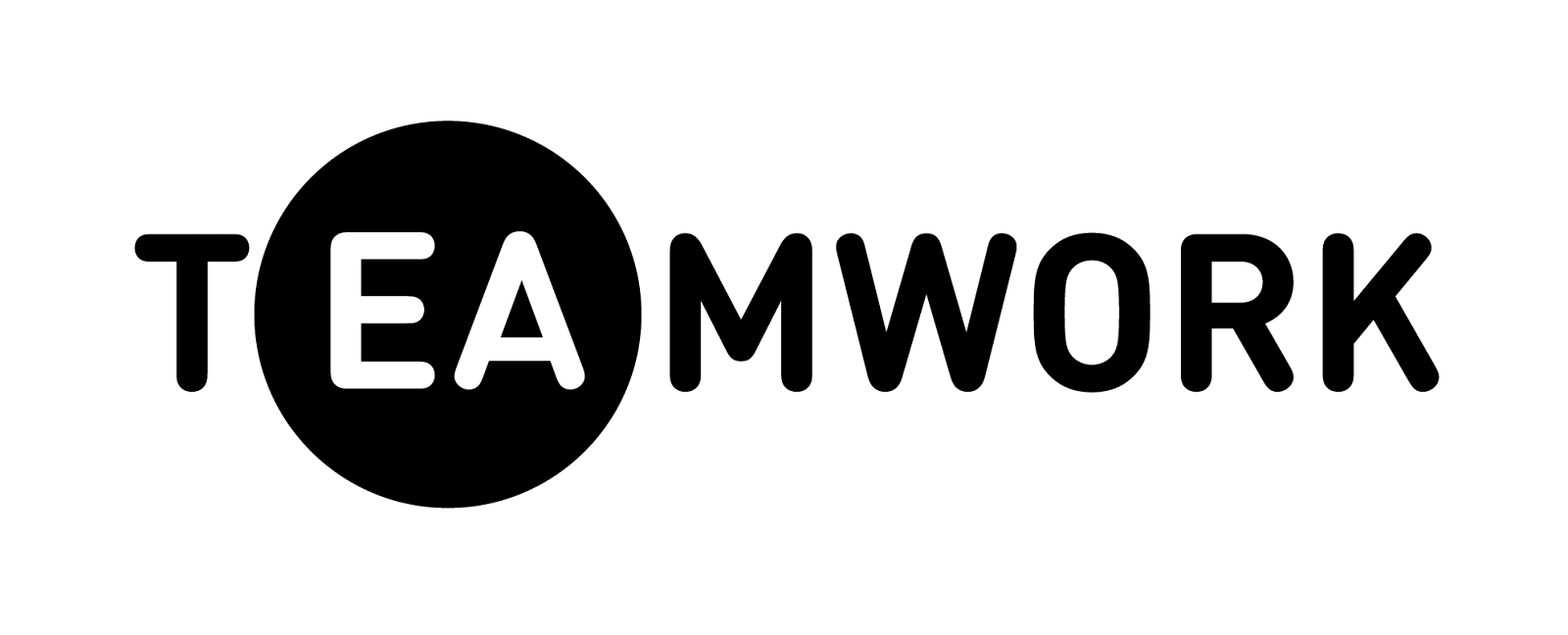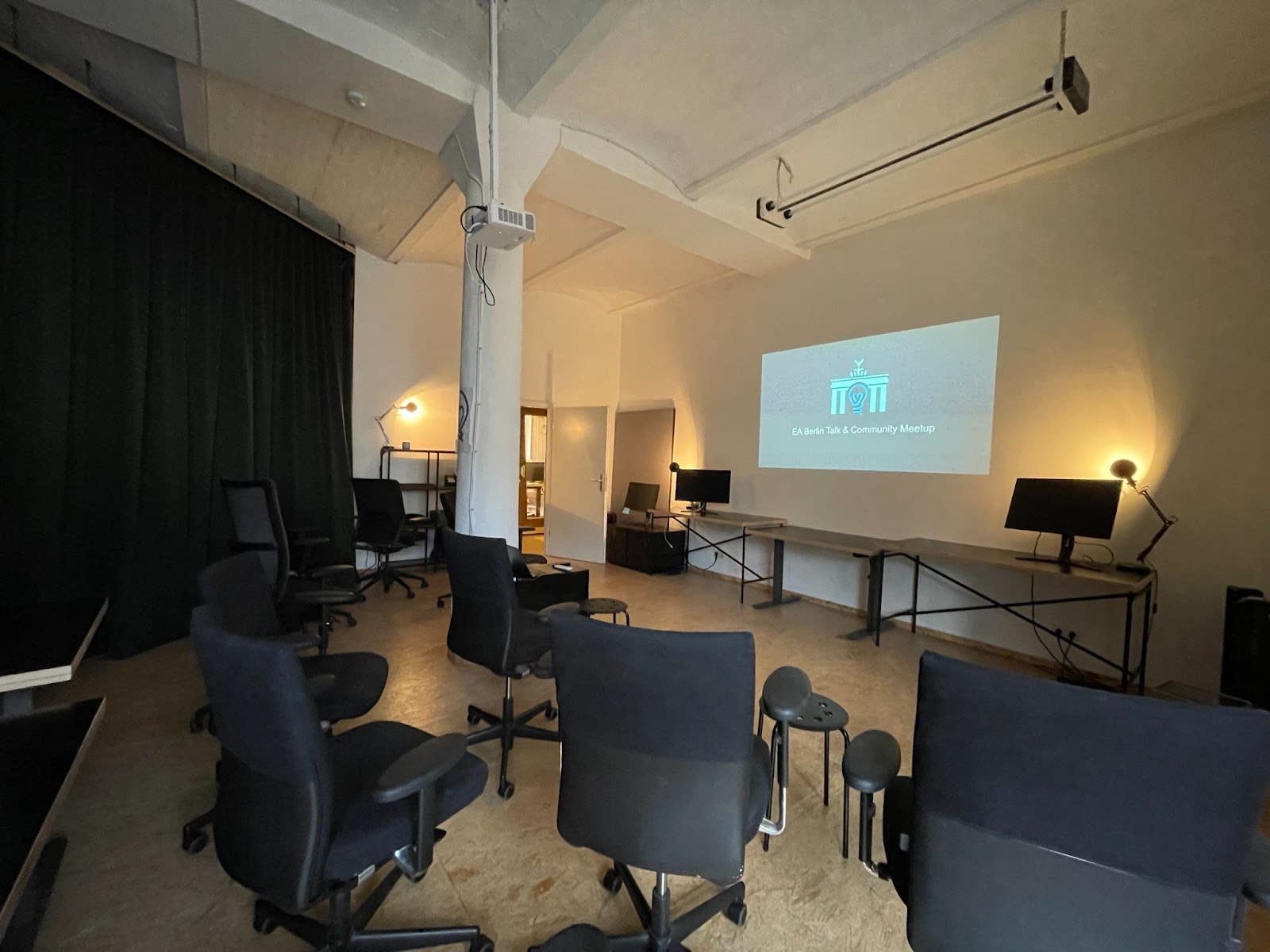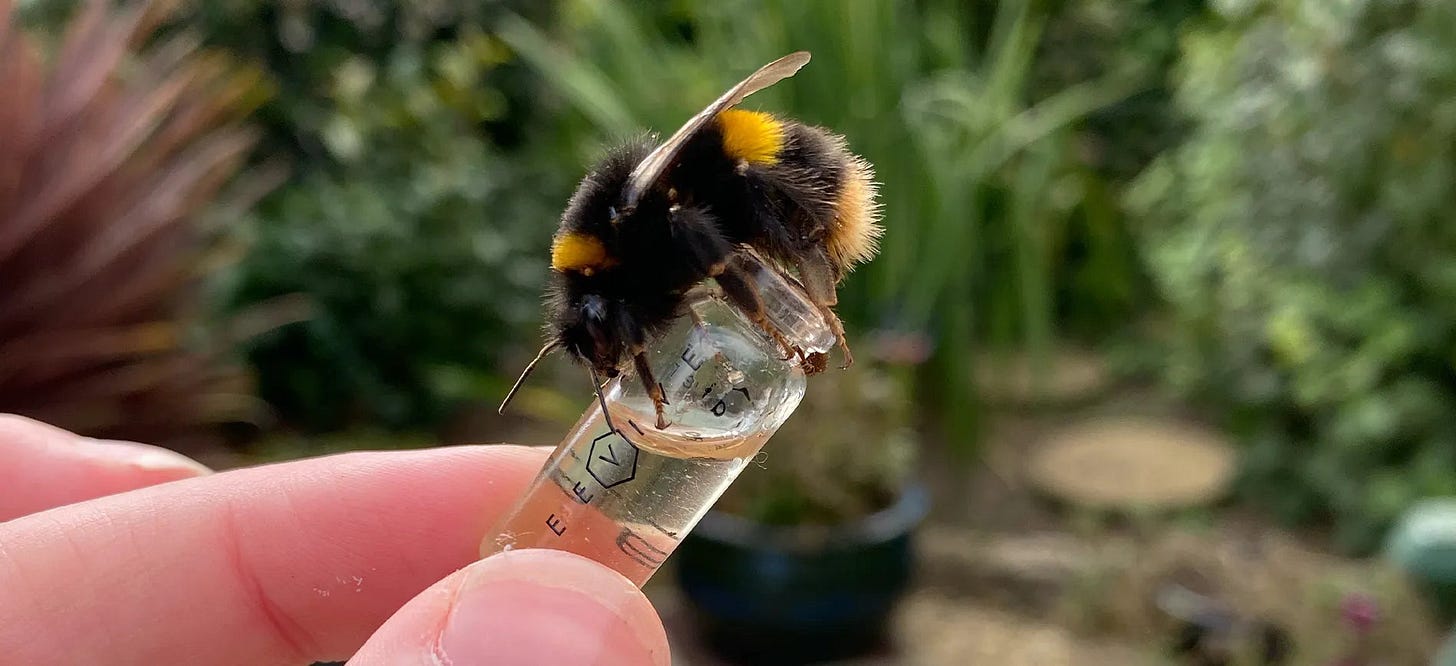
TL;DR
TEAMWORK, a co-working and event space in Berlin run by Effektiv Spenden, is available for use by the Effective Altruism (EA) community. We offer up to 15 desk spaces in a co-working office for EA professionals and a workshop and event space for a broad range of EA events, all free of charge at present (and at least for the rest of 2024).
A lot has changed since the space was established in 2021. After a remodeling project in September last year, there has been a notable improvement in the acoustics and soundproofing, leading to a more focused and productive work environment.
Apply if you would like to join our TEAMWORK community.
Apply here

What TEAMWORK offers
TEAMWORK is a co-working space focused on EA professionals operated by Effektiv Spenden and located in Berlin. Following a remodeling project in fall 2023, we were able to improve the acoustics and soundproofing significantly, fostering a more conducive atmosphere for focused work. Additionally, we transformed one of our co-working rooms into a workshop space, providing everything necessary for productive collaboration and gave our meeting room a makeover with modern new furniture, ensuring a professional setting for discussions and presentations.
Our facilities include:
- Co-working Offices: One large office with 11 desks and a smaller office with four desks. The smaller office is also bookable for team retreats or team co-working, while the big office can be transformed into an event space for up to 40 people.
- Workshop Room: "Flamingo Paradise" serves as a workshop room with a big sofa, a large desk, a flip chart, and a pin board. It can also be used as a small event space, complete with a portable projector. When not in use for events, it functions as a chill and social area.
- Meeting Room: A meeting room for up to four people (max capacity six people). Can also be used for calls.
- Phone Booths: Four private phone booths. In addition to that also the “Flamingo Paradise” and the Meeting room can be used to take a call.
- Community Kitchen: A kitchen with free coffee and tea. We have a communal lunch at 1 pm where members can either bring their own meals or go out to eat.


Berlin as an EA Hub
Berlin is home to a vibrant and growing (professional) EA community, making it one of the biggest EA hubs in continental Europe. It is also home of Effektiv Spenden, Germany’s effective giving organization, that is hosting this space. Engaging with this dynamic community provides opportunities for collaboration and networking with like-minded individuals. Additionally, working from Berlin could offer a change of scene maybe enhancing your productivity and inspiration (particularly in spring and summer).


Join Our Community
Our vision is to have a space where people from the EA Community can not only work to make the world a better place, but can also informally engage with other members of the community during coffee breaks, lunch or at community events. Many of the EA meetups organized by the EA Berlin community take place at TEAMWORK. You can find more information on how to engage with the EA Berlin community here.
People in the TEAMWORK community are working on various cause areas. Our members represent a range of organizations, including Founders Pledge, Future Matters, Open Philanthropy, and Kooperation Global. We frequently host international visitors from numerous EA-aligned organizations such as Charity Entrepreneurship, the Center for Effective Altruism, the Good Food Institute, Future Cleantech Architects, and the Center for the Governance of AI. Additionally, organizations like EA Germany, the Fish Welfare Initiative, One for the World, and Allfed have utilized our space for team retreats and workshops.
Currently, usage of TEAMWORK is free and will remain free until at least the end of 2024. If you are interested in joining us either as a permanent member, visitor or to host your event or workshop, please reach out to us via our application form.







I've been somewhat of a regular at TEAMWORK since its establishment and can wholeheartedly recommend visiting! Great place to work from and to connect to the community.